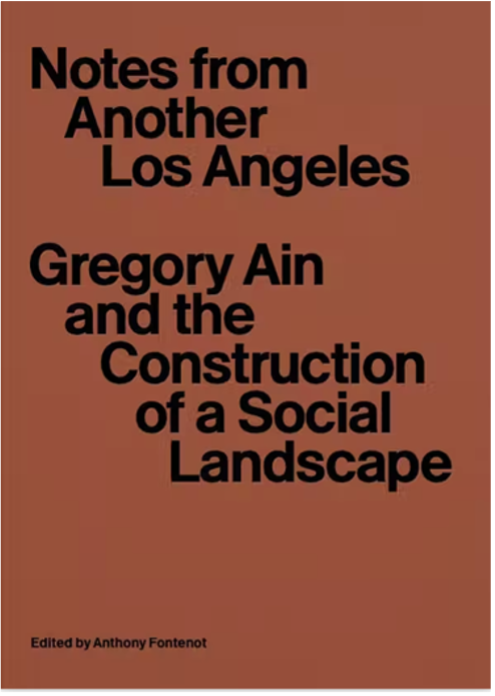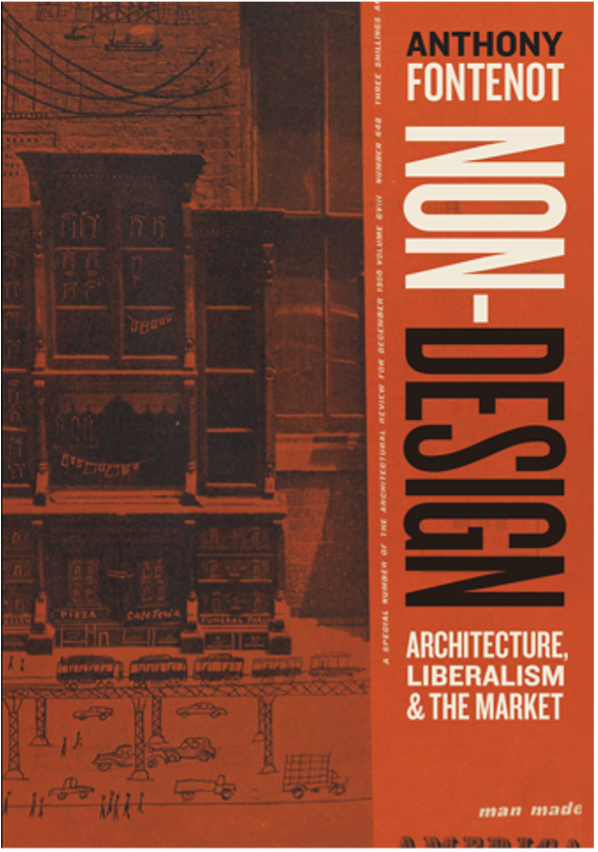Dual Publications Penned by WSOA Professor
The Woodbury School of Architecture is excited to share the two most recent publications by Professor Anthony Fontenot, the principal at Los Angeles-based Anthony Fontenot Architecture, a prolific writer and researcher, and an expert in architecture, urban planning, and landscape, exhibition, and residential design.
 Notes from Another Los Angeles: Gregory Ain and the Construction of a Social Landscape
Notes from Another Los Angeles: Gregory Ain and the Construction of a Social Landscape
(MIT Press, 2022) — This groundbreaking work is the first book to focus on the California architect Gregory Ain’s radical housing projects of the 1930s and 1940s, which featured open kitchens, movable walls, and other design innovations. The book explores how these extremely successful yet controversial housing projects, many of which were based on the cooperative model, promoting equality and racial integration, fused Ain’s interest in radical left-wing politics and design. Professor Fontenot contributed to and edited the book, along with contributions from Gregory Ain, Anthony Denzer, Anali Gharakhani, Esther McCoy, Nicholas Olsberg, Kyungsub Shin, and Julius Shulman.
Anthony Denzer, Anali Gharakhani, Esther McCoy, Nicholas Olsberg, Kyungsub Shin, and Julius Shulman.
Non-Design: Architecture, Liberalism, and the Market
(University of Chicago Press, 2021) — This ambitious book uncovers the surprisingly libertarian heart of the most influential British and American architectural and urbanist discourses of the postwar period, expressed as a critique of central design and a support of spontaneous order. This book was authored by Professor Fontenot with support from the Neil Harris Endowment Fund.
WHAT EXPERTS ARE SAYING
Edward Dimendberg, University of California, Irvine
“Fontenot’s stunningly erudite and deeply researched book is a landmark contribution to the study of the built environment and establishes him as one of the field’s most perspicacious intellectual historians. Its explication of myriad connections among economic thinkers and the disciplines of architecture and urbanism transforms previous understandings and will doubtless foster renewed and refined discussions of monopolies in the twenty-first century. Non-Design is an uncommonly bracing, audacious, and provocative work of historical scholarship.”
Jean-Louis Cohen, New York University Institute of Fine Arts
“In his thoroughly researched tome, Fontenot shapes an innovative vision of postwar architecture. Considering the critical discourse and the practical responses that have challenged the dominion of central planning and functional design, he weaves together well-chosen British and North American episodes marking the emergence of a deliberate denigration of modern design.”
Harry Francis Mallgrave, Illinois Institute of Technology
“Rich in ideas, edifying in its connecting lines, Fontenot’s survey of mid-twentieth-century (non)planning theory is a masterful compendium of urban discussions holding significant relevance today.”
Last Updated on September 9, 2022.